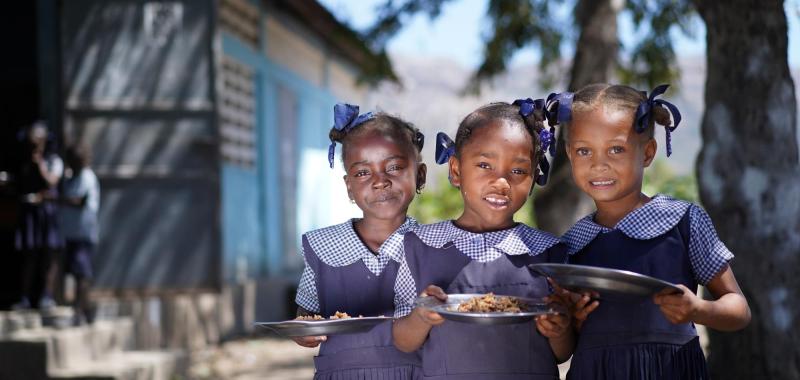WFP works with thousands of schools around the world to help them provide a nutritious daily meal for millions of children in need. However, more than 80 percent of meals in WFP-assisted schools are prepared on rudimentary three-stone fires — which pose a serious threat to health, safety and the environment. Globally, 2.3 billion people lack access to clean cooking solutions, relying on burning biomass with negative socio-economic, health and environmental consequences.
Project overview
Carbon Credits Tanzania aims to create a replicable model, scalable through carbon financing, to improve food security, nutrition and health of low-income communities while protecting the environment by transitioning towards modern electric cooking.
Through the Carbon Credits Tanzania initiative, WFP, Sustainable Energy for All (SEforALL) and Tanzania's National Carbon Monitoring Centre aim to provide electric cooking solutions in 50 grid-connected government primary schools. The initiative will promote local awareness and adoption at the local and national level, particularly empowering women through training on project implementation, energy audits and monitoring. Leveraging their role as platforms for innovation and transformational change, the primary schools will be the hub for the wider adoption of clean cooking solutions in the local community. It also aims to generate carbon credit revenue, which can then be reinvested in the initiative so it can sustainably scale.
Carbon Credits Tanzania is in its scoping phase. It aims to reach 50 primary schools and 50,000 students once fully operational, with the goal of 20 percent savings on cooking fuel for the schools. The replacement of biomass cooking fuels with renewable energy is expected to be more efficient, cost-effective and safe for its users.



